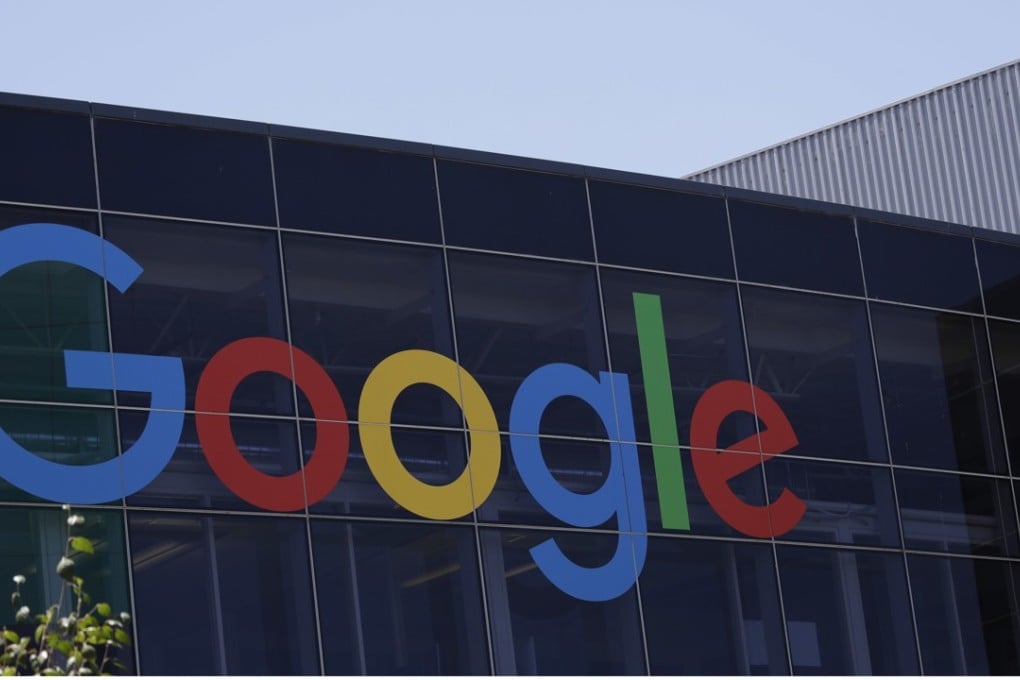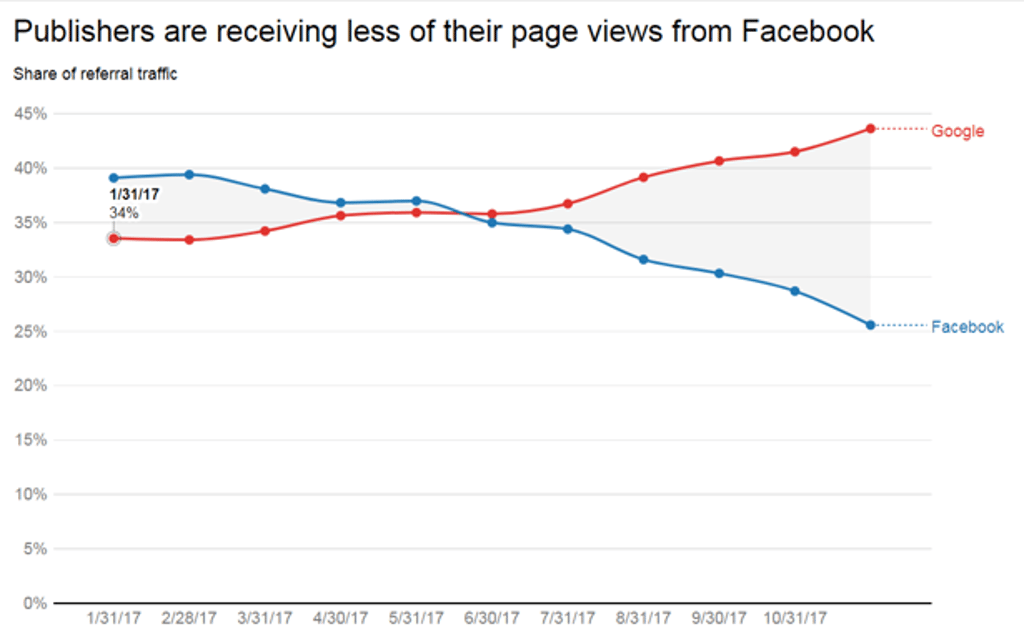Google eclipses Facebook as the top source of traffic for online publishers
US analytics company attributes the shift to the decline of Facebook’s ‘Instant Articles’ feature and a change to its algorithm

Google used to be the main source of referral traffic for web publishers. Then Facebook eclipsed it.
And now, Google is back on top again.
Over the course of 2017, the search engine has become publishers’ main source of external page views, according to new data from Parse.ly, a digital analytics company.
It’s basically a flip from the beginning of the year: In January, Facebook provided nearly 40 per cent of publishers’ external traffic; now that’s down to 26 per cent. And Google, which started the year at 34 per cent, now generates 44 per cent of traffic. Parse.ly’s data comes from some 2,500 publishers that use its analytics service, including the Wall Street Journal, Time Inc., Mashable and Huffington Post.

You can point to a number of factors, but there are a few obvious ones to consider: